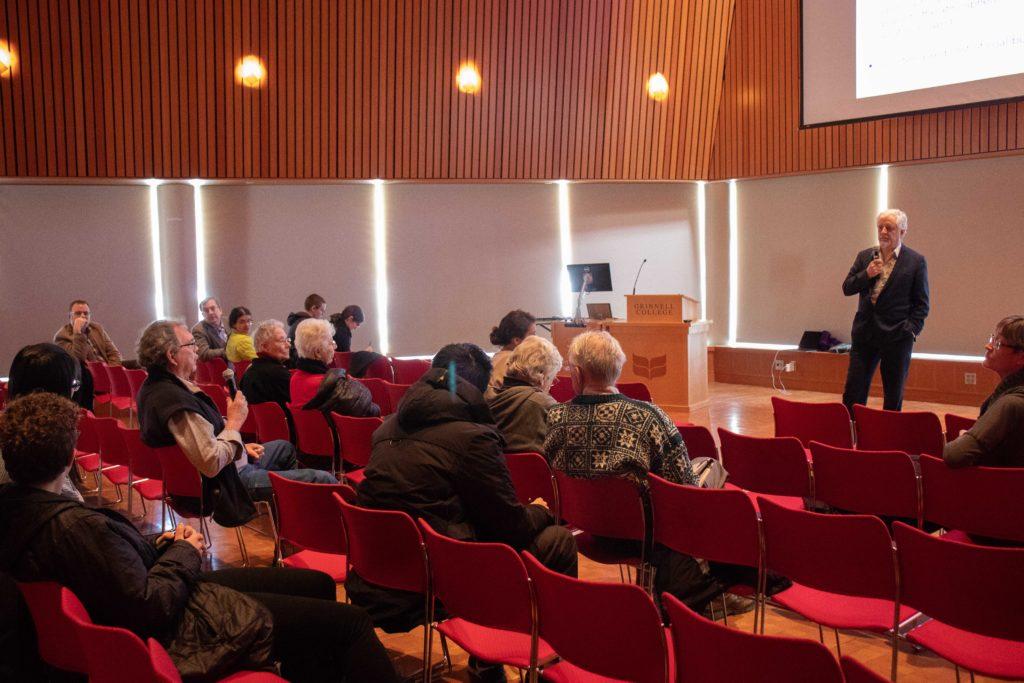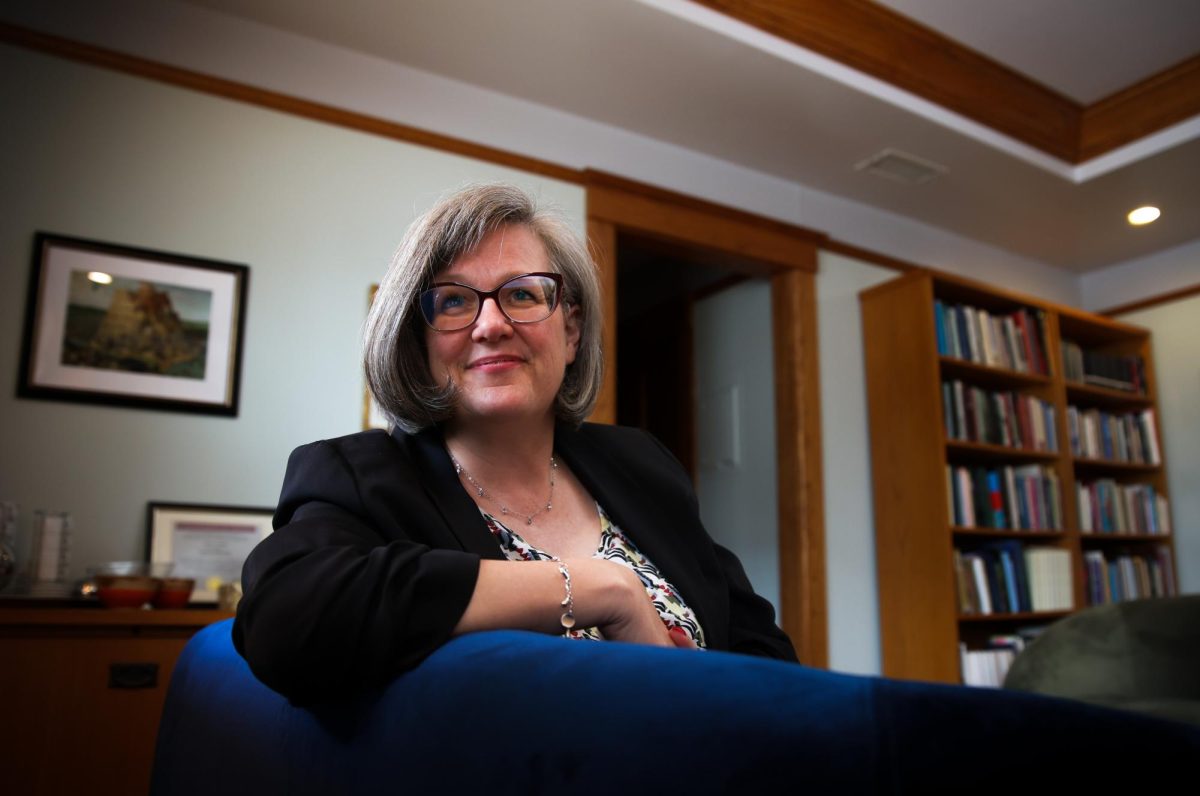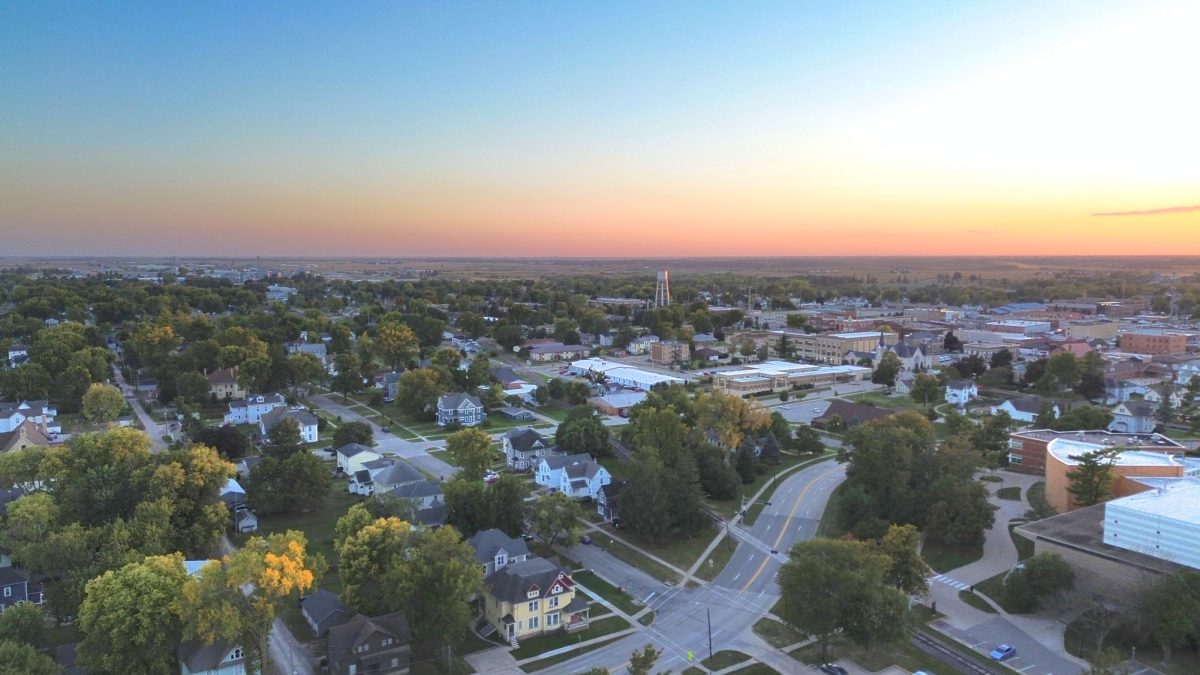
The first Grinnell College Scholars’ Convocation of the Spring 2019 semester was presented by Dr. John Hassard, an expert in climate science. Hassard is the founding associate director of the Institute for Security, Science and Technology at Imperial College London and is a member of that institution’s faculty of natural sciences.
Hassard is the founder and non-executive chairman of the tidal power company HydroVenturi Ltd. and runs a solar thermal energy company.
The topic of the Feb. 14 convocation was “Living in a Post-Hydrocarbon World,” which focused on the ways hydrocarbon fuels are used in energy today, as well as the danger of continuing to release carbon dioxide into the atmosphere and the ways it can be removed. Hydrocarbons are organic molecules made up of hydrogen and carbon atoms, and are commonly found in fossil fuels, such as coal, natural gas, and petroleum. When these fuels are burned, carbon dioxide and carbon dioxide equivalents are released into the atmosphere, contributing to the increasing greenhouse effect that traps heat from the sun below Earth’s atmosphere. This trapped heat causes the planet’s ice caps to melt, sea levels to rise, and global temperatures to become steadily hotter.
Dr. Hassard began the presentation by saying that due to the danger coal and fuel emissions pose, it is in the best interest of humanity and the planet in general to use science to develop safe ways to reduce emissions and remove carbon dioxide from the atmosphere. Due to global warming (or, as Hassard referred to it, global heating), there will be an irreversible temperature increase of approximately 4-5 degrees Fahrenheit within the next generation, causing agricultural upheavals and making parts of the Middle East unlivable. This change will displace hundreds of millions of people northward.
Hassard made a point of saying that although the changes happening now are threatening, there is still time to make changes that can stop and even reverse some of the damage.
“It is no longer enough for us to stop putting CO2 in the atmosphere. … We have to actually start removing it,” he said. Hassard argued for an intervention at the global level, noting that carbon dioxide released into the atmosphere by one country will rapidly become the issue of another, due to atmospheric circulation.
Professor Wayne Moyer, political science, mentioned difficulties scientists and politicians face.
“What [politicians] see their task as being is usually, at least in a democratic country, short-term benefits to their constituents, and that’s not the main concern of scientists. Scientists are reluctant to get inside the political process, because in some ways that contaminates their scientific objectivity,” Moyer said. “If you’re an advocate at the same time you’re trying to be an objective scientist, it’s hard. It’s not that scientists can’t contribute to the political debate, but I think they’re uncomfortable in it, and the questions that politicians are asking are different than the questions that [scientists] are asking.”
Asked about the importance of undergraduate climate research, Moyer said, “People of my generation haven’t been able to come to grips with the problem, and people in the generation younger than me haven’t been able to. Nobody’s paid much attention to it, and it often gets tied up with their vested interests. Your generation is going to feel this like my generation won’t.”
In response to the same question, Hassard said, “If you’re an undergraduate and you’re not angry … you’re not paying attention. I’d be really angry if I was your age.”



























































